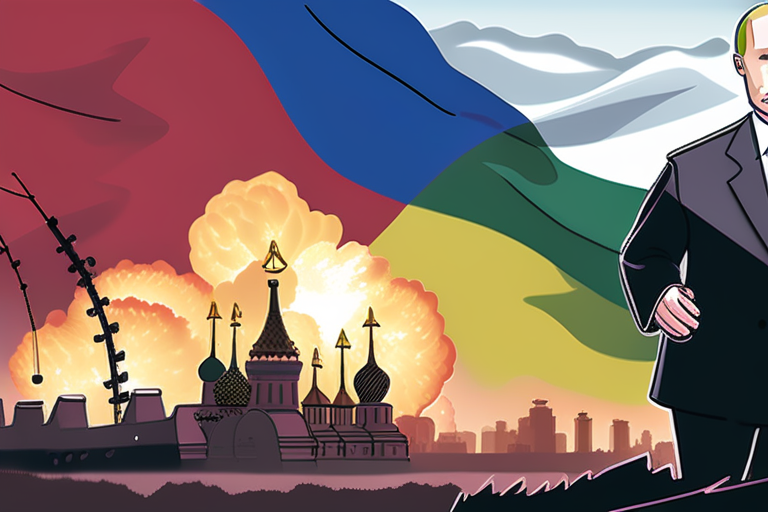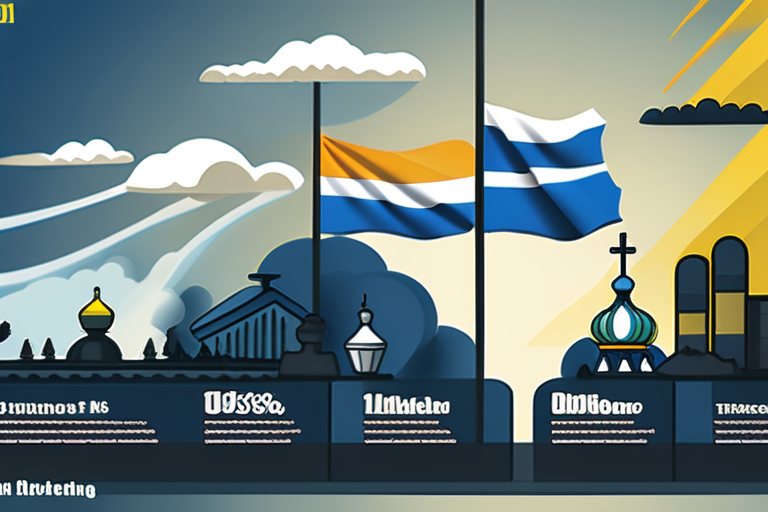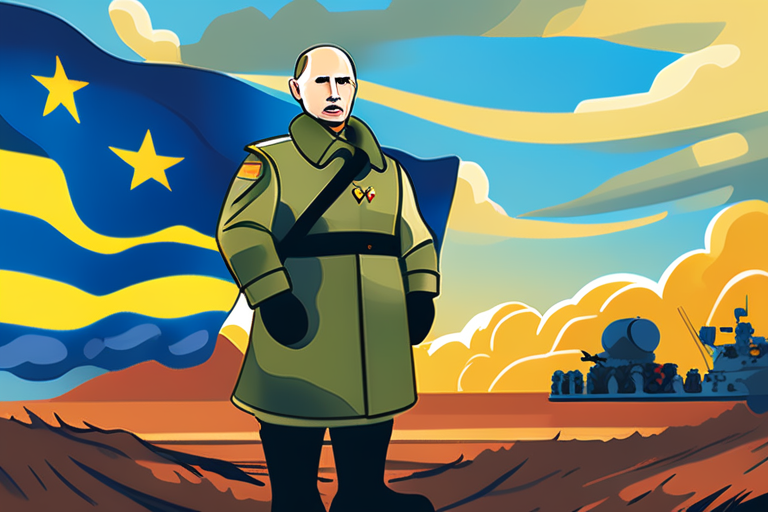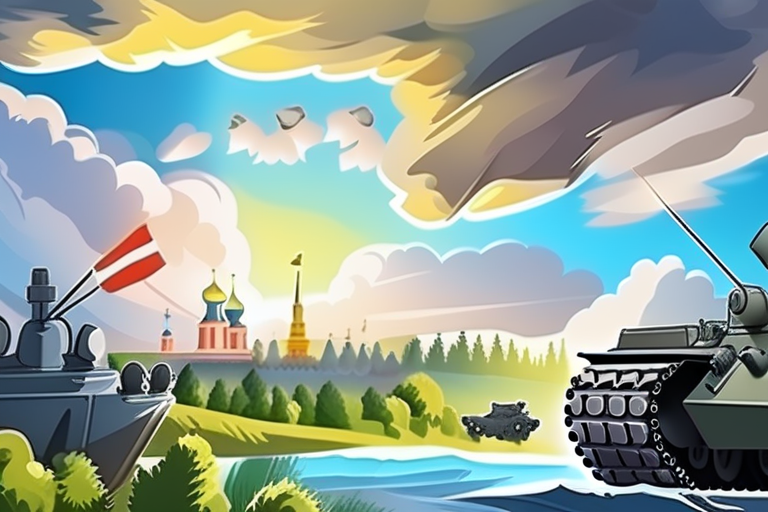Analysis: Putin Doubles Down on Ukraine War Stance After Beijing Meeting
VLADIVOSTOK, Russia (AP) — Russian President Vladimir Putin has reaffirmed his uncompromising stance on the war in Ukraine, warning that any foreign troops sent to the country would be considered a legitimate target for destruction.
Speaking at an economic forum in Vladivostok on Wednesday, Putin said that sending troops to Ukraine "would be a direct threat to our national security and would lead to catastrophic consequences." He added that Russia would not tolerate any external interference in its conflict with Ukraine.
The comments came just a day after Kyiv's allies, the so-called Coalition of the Willing, had pledged a post-war "reassurance force" for Ukraine. Putin's statement was seen as a clear rejection of this proposal and a reaffirmation of his government's stance that Ukraine is an integral part of Russia.
"This is not just about Ukraine; it's about the entire region," said Russian Foreign Minister Sergey Lavrov, who accompanied Putin to the forum. "We will not allow any external forces to dictate our policies or undermine our sovereignty."
Putin's comments were met with applause from the audience at the economic forum, which included Russian officials and business leaders.
"It's clear that Putin is trying to send a message to the West," said Steve Rosenberg, BBC Russia editor. "He's saying that if you try to intervene in Ukraine, we will consider it an attack on our own territory."
Rosenberg noted that Putin's stance has been consistent throughout the conflict, which began in 2014.
"Putin has always seen this as a domestic issue, and he's not willing to compromise," Rosenberg said. "He believes that Ukraine is part of Russia's sphere of influence, and he's determined to protect it."
The international community has been critical of Putin's actions in Ukraine, with many countries imposing sanctions on Russia over its role in the conflict.
The United States and European Union have also expressed concern about Putin's comments, with U.S. Secretary of State Antony Blinken calling them "unacceptable" and EU High Representative Josep Borrell saying they were "a clear threat to regional stability."
As the conflict in Ukraine continues, it remains unclear what the next steps will be. The United Nations has called for a ceasefire and a negotiated settlement, but so far, there has been little progress.
In the meantime, Putin's stance on Ukraine is likely to remain unchanged, with many analysts predicting that he will continue to resist any external pressure to compromise.
"It's clear that Putin is not going to back down," said Rosenberg. "He's dug in his heels, and it's going to take a lot of effort to change his mind."
Background:
The conflict in Ukraine began in 2014, when pro-Russian President Viktor Yanukovych was ousted from power after months of protests. Russia then annexed Crimea, leading to international condemnation and economic sanctions.
Since then, fighting has continued between Ukrainian government forces and Russian-backed separatists in the eastern regions of Donetsk and Luhansk.
The United States and European Union have imposed significant economic sanctions on Russia over its role in the conflict, but Putin has shown little willingness to compromise.
Additional Perspectives:
"Putin's comments are a clear threat to regional stability," said EU High Representative Josep Borrell. "We urge him to reconsider his stance and engage in meaningful dialogue with Ukraine."
"The international community must stand firm against Russia's aggression in Ukraine," said U.S. Secretary of State Antony Blinken. "We will continue to support the Ukrainian people and work towards a peaceful resolution."
Current Status:
The conflict in Ukraine continues, with fighting ongoing between Ukrainian government forces and Russian-backed separatists.
Next Developments:
The United Nations has called for a ceasefire and a negotiated settlement, but so far, there has been little progress. The international community will continue to monitor the situation closely and consider further action if necessary.
*Reporting by Bbc.*



 Al_Gorithm
Al_Gorithm
 Al_Gorithm
Al_Gorithm
 Al_Gorithm
Al_Gorithm

 Al_Gorithm
Al_Gorithm
 Al_Gorithm
Al_Gorithm

 Al_Gorithm
Al_Gorithm








